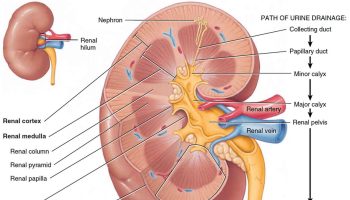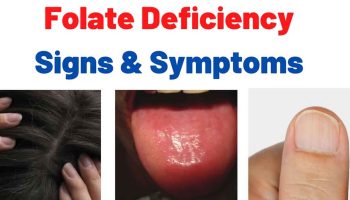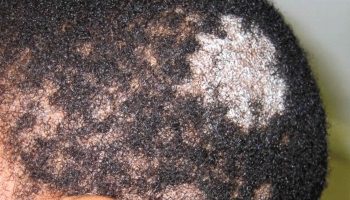Contents
What is impotence
Male impotence also known as erectile dysfunction is a common type of male sexual dysfunction. Male impotence is when a man has trouble getting an erection to have sex or can’t keep an erection long enough to finish having sex 1. Erectile dysfunction (male impotence) can occur at any age, but it is more common in men older than 75 years of age. But it’s not a natural part of aging 2. It’s true that as you get older, you may need more stimulation (such as stroking and touching) to get an erection. You might also need more time between erections. But older men should still be able to get an erection and enjoy sex.
Erectile dysfunction is the most common sexual problem in men; it often causes serious distress, prompting men to seek medical attention they may not otherwise seek. It often has a profound effect on intimate relationships, quality of life, and overall self-esteem. Erectile dysfunction may also be the presenting symptom or harbinger of undetected cardiovascular disease 3. A population-based study of U.S. health professionals found the prevalence of male impotence in men to be 12 percent in those younger than 59 years, 22 percent in those 60 to 69 years of age, and 30 percent in those older than 69 years 4. Persons with type 2 diabetes mellitus have a threefold greater risk of male impotence compared with the general population 5. Depression increases the risk of male impotence, but it is not clear if this relationship is causal 6.
Men with erectile dysfunction should be considered for cardiovascular risk screening 7. Erectile dysfunction rates differ significantly in patients with established coronary artery disease (coronary heart disease). On average, erectile dysfunction symptoms present three years earlier than coronary heart disease symptoms 8. Men with erectile dysfunction have a 75 percent increased risk of peripheral vascular disease 9. The Prostate Cancer Prevention Trial determined that men with erectile dysfunction have a significantly greater likelihood of having angina, myocardial infarction, stroke, transient ischemic attack, congestive heart failure, or cardiac arrhythmia compared with men without erectile dysfunction 10. Because most men are asymptomatic before an acute coronary syndrome, erectile dysfunction may serve as a sentinel marker for prompting discussions centered on promotion of cardiovascular risk stratification and modification.
Some people have trouble speaking with their doctors about sex. But if you have erectile dysfunction, you should tell your doctor. Erectile dysfunction can be a sign of other health problems. It may mean your blood vessels are clogged. It may mean you have nerve damage from diabetes. If you don’t see your doctor, these problems will go untreated.
Your doctor can offer several new treatments for erectile dysfunction. For many men, the answer is as simple as taking a pill. Getting more exercise, losing weight, or stopping smoking may also help.
Symptoms of erectile dysfunction
The primary symptom of erectile dysfunction is not being able to get or keep an erection in order to have sex.
Erectile dysfunction (male impotence) symptoms might include persistent:
- Trouble getting an erection
- Trouble keeping an erection
- Reduced sexual desire
What causes erectile dysfunction ?
Male sexual arousal is a complex process that involves the brain, hormones, emotions, nerves, muscles and blood vessels. Erectile dysfunction can result from a problem with any of these. Likewise, stress and mental health concerns can cause or worsen erectile dysfunction.
Sedentary lifestyle, a significant risk factor for cardiovascular disease, may also be a modifiable risk factor for erectile dysfunction 7. Obesity nearly doubles the risk of erectile dysfunction 5; one study determined that one third of men who were obese improved their erectile dysfunction with moderate weight loss and an increase in the amount and duration of regular exercise 11. The risk of moderate or total erectile dysfunction is almost double in men who smoke compared with nonsmokers 12. Patient education should be aimed at increasing exercise, losing weight to achieve a body mass index (BMI) less than 30 kg per m2, and stopping smoking.
Sometimes a combination of physical and psychological issues causes erectile dysfunction. For instance, a minor physical condition that slows your sexual response might cause anxiety about maintaining an erection. The resulting anxiety can lead to or worsen erectile dysfunction.
Physical causes of erectile dysfunction
In many cases, erectile dysfunction is caused by something physical. Common causes include:
- Diabetes (high blood sugar)
- Hypertension (high blood pressure)
- Atherosclerosis (hardening and clogged arteries)
- Stress, anxiety, or depression
- Alcohol and tobacco use
- Brain or spinal-cord injuries
- Hypogonadism (which leads to lower testosterone levels)
- Some prescription medications, such as antidepressants, pain medicine and medicine for high blood pressure
- Fatigue
- Heart disease
- High cholesterol
- Obesity
- Metabolic syndrome — a condition involving increased blood pressure, high insulin levels, body fat around the waist and high cholesterol
- Parkinson’s disease
- Multiple sclerosis
- Certain prescription medications
- Tobacco use
- Drug use
- Peyronie’s disease — development of scar tissue inside the penis
- Alcoholism and other forms of substance abuse
- Sleep disorders
- Treatments for prostate cancer or enlarged prostate
- Surgeries or injuries that affect the pelvic area or spinal cord
- Radiation therapy to the testicles
- Stroke
- Some types of prostate or bladder surgery.
Table 1. Medications and Substances That May Cause or Contribute to Erectile Dysfunction
| Medication class or substance | Examples |
|---|---|
Analgesics | Opiates |
Anticholinergics | Tricyclic antidepressants |
Anticonvulsants | Phenytoin (Dilantin), phenobarbital |
Antidepressants | Lithium, monoamine oxidase inhibitors, selective serotonin reuptake inhibitors, tricyclic antidepressants |
Antihistamines | Dimenhydrinate, diphenhydramine (Benadryl), hydroxyzine (Vistaril), meclizine (Antivert), promethazine (Phenergan) |
Antihypertensives | Alpha blockers, beta blockers, calcium channel blockers, clonidine (Catapres), methyldopa, reserpine |
Anti-Parkinson agents | Bromocriptine (Parlodel), levodopa, trihexyphenidyl |
Cardiovascular agents | Digoxin, disopyramide (Norpace), gemfibrozil (Lopid) |
Cytotoxic agents | Methotrexate |
Diuretics | Spironolactone (Aldactone), thiazides |
Hormones | 5-alpha reductase inhibitors, corticosteroids, estrogens, luteinizing hormone-releasing hormone agonists, progesterone |
Illicit drugs, alcohol, and nicotine | Amphetamines, barbiturates, cocaine, heroin, marijuana |
Immunomodulators | Interferon-alfa |
Tranquilizers | Benzodiazepines, butyrophenones, phenothiazines |
[Source 13]
Psychological causes of erectile dysfunction
The brain plays a key role in triggering the series of physical events that cause an erection, starting with feelings of sexual excitement. A number of things can interfere with sexual feelings and cause or worsen erectile dysfunction. These include:
- Depression, anxiety or other mental health conditions
- Stress
- Relationship problems due to stress, poor communication or other concerns. Problems in your relationship with your sexual partner can also cause erectile dysfunction. Improving your relationship may help your sex life. If you decide to seek therapy, it will probably be most effective if your sex partner is included.
If you can’t keep your blood sugar or your blood pressure under control, you can get erectile dysfunction. It’s important that you take your medicines for these problems just the way your doctor tells you.
Sometimes your hormones get out of balance, and this causes erectile dysfunction. Your doctor will decide if you need blood tests to check your hormones. Some medicines can cause erectile dysfunction. If this is true for you, your doctor may take you off that medicine or give you a different one. Drinking too much alcohol, smoking too much, and abusing drugs can also cause erectile dysfunction.
Couples can learn new ways to please one another and to show affection. This can reduce anxiety about having erections.
Feelings that can lead to erectile dysfunction include:
- Feeling nervous about sex, perhaps because of a bad experience or because of a previous episode of impotence.
- Feeling stressed, including stress from work or family situations.
- Being troubled by problems in your relationship with your sex partner.
- Feeling depressed.
- Feeling so self-conscious that you can’t enjoy sex.
- Thinking that your partner is reacting negatively to you.
Risk Factors for Erectile Dysfunction
- Advancing age
- Cardiovascular disease
- Cigarette smoking
- Diabetes mellitus
- History of pelvic irradiation or surgery, including radical prostatectomy
- Hormonal disorders (e.g., hypogonadism, hypothyroidism, hyperprolactinemia)
- Hypercholesterolemia
- Hypertension
- Illicit drug use (e.g., cocaine, methamphetamine)
- Medications (e.g., antihistamines, benzodiazepines, selective serotonin reuptake inhibitors)
- Neurologic conditions (e.g., Alzheimer disease, multiple sclerosis, Parkinson disease, paraplegia, quadriplegia, stroke)
- Obesity
- Peyronie disease
- Psychological conditions (e.g., anxiety, depression, guilt, history of sexual abuse, marital or relationship problems, stress)
- Sedentary lifestyle
- Venous leakage
Complications of male impotence
Complications resulting from erectile dysfunction can include:
- An unsatisfactory sex life
- Stress or anxiety
- Embarrassment or low self-esteem
- Relationship problems
- The inability to get your partner pregnant
Prevention of erectile dysfunction
The best way to prevent erectile dysfunction is to make healthy lifestyle choices and to manage any existing health conditions. For example:
- Work with your doctor to manage diabetes, heart disease or other chronic health conditions.
- See your doctor for regular checkups and medical screening tests.
- Stop smoking, limit or avoid alcohol, and don’t use illegal drugs.
- Exercise regularly.
- Take steps to reduce stress.
- Get help for anxiety, depression or other mental health concerns.
How is erectile dysfunction diagnosed ?
Impotence is usually easy to diagnose. Even if you are tempted to self-diagnose, you should still talk to your doctor. Your doctor will want to make sure that your erectile dysfunction is not a sign of other health problems.
Your doctor will probably start by asking you some questions and doing a physical exam. He or she may test samples of your blood and urine for diseases and disorders. Other tests may also be needed. Your doctor will determine which tests are right for you.
Can erectile dysfunction be prevented or avoided ?
Whether you’ll be able to prevent impotence depends on what is causing it. Here are some things you can do that may help prevent impotence.
- Avoid drinking too much alcohol, smoking, or abusing drugs.
- Before starting a new medicine, ask your doctor if erectile dysfunction is a possible side effect. If it is, you could discuss possible alterative medicines.
- Keep your blood sugar and blood pressure under control.
- Try to avoid feeling stressed.
Impotence treatment
The treatment for erectile dysfunction depends on what is causing it. After your doctor checks you for medical problems and medicines that might cause male impotence, he or she may recommend a medicine to help with it. Phosphodiesterase type 5 (PDE5) inhibitors are the most effective oral drugs in the treatment of erectile dysfunction 14 and should be considered first-line therapy. Sildenafil (brand name: Viagra), tadalfil (brand name: Cialis), and vardenafil (brand name: Levitra) are medicines that are taken by mouth that help maintain an erection. Approximately one third of men with erectile dysfunction do not respond to therapy with PDE5 inhibitors. These agents are not effective for improving libido 15.
Not everyone can use these medicines. Your doctor may talk to you about alprostadil if oral medicines aren’t an option for you. Alprostadil is a synthetic version of prostaglandin E. It can be injected into the penis or inserted as a tiny suppository into the urethra (the hole at the end of the penis). Your doctor will help you decide which treatment is best for you.
The prevalence of hypogonadism (defined as a morning serum total testosterone level less than 300 ng per dL [10.41 nmol per L]) in men with erectile dysfunction is estimated to be 5 to 10 percent 16. In men with hypogonadism, testosterone supplementation is superior to placebo in improving erections and sexual function. Response rates are higher in primary versus secondary testicular failure, and with transdermal versus oral or intramuscular testosterone 17. Supplementation is also associated with improved satisfaction with erectile function and sexual desire.29 Men with hypogonadism who failed a trial of sildenafil were found to have significant improvement in erectile function with the addition of testosterone supplementation 18. Testosterone supplementation may result in erythrocytosis, elevated serum trans-aminase levels, exacerbation of untreated sleep apnea, benign prostatic hyperplasia, and an increased risk of adenocarcinoma of the prostate. Men receiving testosterone supplementation require more frequent monitoring of hemoglobin, serum transaminase, and prostate-specific antigen levels, and prostate examinations 19.
Erectile dysfunction medications
Sildenafil (Viagra), vardenafil (Levitra, Staxyn), tadalafil (Cialis) and avanafil (Stendra) are oral medications that reverse erectile dysfunction by enhancing the effects of nitric oxide, a natural chemical your body produces that relaxes muscles in the penis. This increases blood flow and allows you to get an erection in response to sexual stimulation.
Although they work in similar ways, each oral medication has a slightly different chemical makeup. These minor differences affect the way each medication works, such as how quickly it takes effect and wears off, and the potential side effects. Your doctor will consider these factors as well as any health problems you have and possible interactions with other medications you take.
- Sildenafil (Viagra). This medication is most effective when taken on an empty stomach one hour before sex. It’s effective for up to six hours.
- Vardenafil (Levitra, Staxyn). This medication also is most effective when taken one hour before sex and can be taken with or without food. It’s effective for up to seven hours.
- Tadalafil (Cialis). This medication is taken with or without food about one to two hours before sex. It’s effective for 36 hours. It can be taken in a small dose daily or in a larger dose as needed.
- Avanafil (Stendra). This medication is taken with or without food 15 to 30 minutes before sex, depending on the dose. It lasts up to six hours.
Before taking any medication for erectile dysfunction, get your doctor’s OK.
Medications for erectile dysfunction might not work or might be dangerous if you:
- Take nitrate drugs — commonly prescribed for chest pain (angina) — such as nitroglycerin (Minitran, Nitro-Dur, Nitrostat, others), isosorbide mononitrate (Monoket) and isosorbide dinitrate (Dilatrate-SR, Isordil)
- Have very low blood pressure (hypotension) or uncontrolled high blood pressure (hypertension)
- Have severe liver disease
- Have kidney disease that requires dialysis
Most men who take oral erectile dysfunction medications aren’t bothered by side effects. When side effects do occur, they can include:
- Flushing
- Stuffy or runny nose
- Headache
- Visual changes, such as color tinge to vision, sensitivity to light or blurred vision
- Indigestion
- Dizziness and fainting
Rarely, more-serious side effects can occur, including:
- Hearing loss or vision loss. Some men have had sudden loss of hearing or loss of vision after taking one of these medications. However, it isn’t clear whether vision or hearing loss was directly caused by taking the medication or by a pre-existing condition. If you’re taking an oral erectile dysfunction medication and have sudden loss of hearing or vision, seek prompt medical attention.
- An erection that doesn’t go away on its own. Called priapism, this rare condition can be painful and requires medical treatment to avoid damage to your penis. If you have an erection that lasts more than four hours, seek immediate medical attention.
Treatments for erectile dysfunction are big business, and online scams abound.
If you do buy medications over the Internet:
- Check to see if an online pharmacy is legitimate. Never order medications from an online pharmacy if there’s no way to contact the pharmacy by phone, if prices seem too good to be true or if you’re told no prescription is necessary. Some illegal businesses sell counterfeit versions of legitimate medications, which can be ineffective or dangerous. In the U.S., the National Association of Boards of Pharmacy can tell you whether an online pharmacy is licensed and in good standing.
- Make sure you get the right prescription and dose. When you order medications — and when you receive them in the mail — make sure they’re the exact dose and type prescribed by your doctor.
- Don’t be fooled into buying ‘herbal viagra.’ Never take any medications that claim to be the “herbal” or nonprescription equivalent of an oral medication for erectile dysfunction. These aren’t an effective alternative, and some contain harmful substances.
How should you take erectile dysfunction medications ?
Follow your doctor’s instructions. Usually, a man takes 1 tablet 30 minutes to 1 hour before he plans to have sex. Sildenafil works for 4-8 hours; vardenafil works for up to 8 hours; and tadalafil works for up to 36 hours.
You should not take more than 1 dose in 24 hours. Tadalfil and vardenafil come in tablets of 2.5 mg, 5 mg, 10 mg and 20 mg. Sildenafil comes in tablets of 25 mg, 50 mg and 100 mg.
Even if you take the medications, you still need physical and mental stimulation and desire to have an erection. If your first dose doesn’t help, call your doctor. Your doctor may want to change your tablet strength.
What are the side effects of impotent medications ?
The side effects of impotent medications are mostly the same. Sildenafil and vardenafil can cause these side effects:
- headache
- flushing (face and upper body turning red and warm)
- stomach upset
- runny nose (sniffles)
- vision changes (things look blue).
Tadalfil has the same side effects, except for the flushing and possible changes in vision. Instead, it can also cause back pain and muscle aches. For each of the medications, headache is the most common side effect. Vision changes are the least common. Talk to your doctor if you have any side effect that bothers you.
Call your doctor right away if you take one of these medications and have a prolonged erection that lasts 4 hours or longer. This condition may cause permanent impotence if not treated.
Can everyone use impotent medications ?
No. You shouldn’t use these medicines if you take nitroglycerin or any other nitrates for chest pain. If you have heart problems, tell your doctor before taking any impotent medicines. These medicines can have serious side effects in people who have heart problems.
If you use sildenafil, tadalfil, or vardenafil and get chest pains, be sure to tell the paramedics, nurses or doctors at the hospital that you use it and when you used it last.
Living with erectile dysfunction
If the medicines aren’t right for you, you could also try using a penile implant, vacuum pump devices, or you could have surgery. Your doctor may send you to an urologist to talk about these options.
Dietary supplements for erectile dysfunction
You’ve likely seen advertisements for erectile dysfunction herbs or supplements to “increase your sexual performance.” Could they work for you ?
Erectile dysfunction supplements and other natural remedies have long been used in Chinese, African and other cultures 20. But unlike prescription medications for erectile dysfunction, such as sildenafil (Viagra), vardenafil (Levitra, Staxyn), tadalafil (Cialis) and avanafil (Stendra), erectile dysfunction herbs and supplements haven’t been well-studied or tested. Some can cause side effects or interact with other medications. And the amount of the active ingredient can vary greatly from product to product.
Be wary of ‘herbal viagra’ 21
A number of nonprescription products claim to be herbal forms of Viagra. Some of these products contain unknown amounts of ingredients similar to those in prescription medications, which can cause dangerous side effects. Some actually contain the real drug, which should be given by prescription only. Although the Food and Drug Administration has banned many of these products, some potentially dangerous erectile dysfunction remedies remain on the market.
Here’s a guide to erectile dysfunction herbs and supplements 22:
Table 2. Studied in people, positive results, generally safe
| Herb or supplement | Does it work? | Safety |
|---|---|---|
| [Source 23] | ||
| DHEA | Some evidence shows that dehydroepiandrosterone (DHEA) increases libido in women and helps erectile dysfunction in men. | DHEA appears to be safe at low doses. It can cause acne. |
| L-arginine | Some evidence shows that taking high doses improves erectile dysfunction by stimulating blood vessels to open wider for improved blood flow. | Side effects may include nausea, cramps and diarrhea. Don’t take L-arginine with Viagra. |
| Ginseng | One study of Panax ginseng showed it improved sexual function in men with erectile dysfunction. A cream preparation is used for premature ejaculation. | Panax ginseng contains many active ingredients. It appears to be safe used on a short-term basis. Insomnia is a common side effect. |
| Propionyl-L-carnitine | Studies have shown that propionyl-L-carnitine combined with Viagra might improve erectile function better than sildenafil alone. | Propionyl-L-carnitine is likely to be safe when used under medical supervision. |
Table 3. Studied in people, positive results, risky
| Herb or supplement | Does it work? | Safety |
|---|---|---|
| Yohimbe | A number of clinical trials have shown that the primary component of this bark from an African tree can improve sexual dysfunction associated with a drug used to treat depression. | This herb has been linked to a number of side effects, including increased blood pressure, fast or irregular heartbeat, and anxiety. Yohimbe shouldn’t be used without a doctor’s supervision. |
Table 4. Not studied in people or negative results
| Herb or supplement | Does it work? | Safety |
|---|---|---|
| Ginkgo | Ginkgo has the potential to increase blood flow to the penis. But there’s no evidence of benefit for erectile dysfunction. | Ginkgo might increase the risk of bleeding. |
| Horny goat weed (epimedium) | Substances in the leaves of this herb have been used to improve sexual performance, but the herb has not been studied in people. | This herb might affect heart function. |
Be cautious and talk to your doctor
Just because a product claims to be natural doesn’t mean it’s safe. Many herbal remedies and dietary supplements can cause side effects and dangerous interactions when taken with certain medications. Talk to your doctor before you try an alternative treatment for erectile dysfunction — especially if you’re taking medications or you have a chronic health problem such as heart disease or diabetes.
SURGICAL AND PROCEDURAL THERAPY
Alprostadil (Caverject) is a viable second-line therapeutic option for the treatment of erectile dysfunction. It should initially be administered in the physician’s office at the lowest dose and sequentially titrated to an adequate erectile response while monitoring for syncope. The physicians should also provide education on self-administration.8 Intra-cavernosal alprostadil is more effective, better tolerated, and preferred by men over the intraurethral form 24. Common adverse effects of intraurethral alprostadil include local penile pain, urethral bleeding, dizziness, and dysuria. Common adverse effects of intracavernosal alprostadil include penile pain, edema and hematoma, palpable nodules or plaques, and priapism. Patients should be informed about the potential for occurrence of prolonged erections and should seek emergent medical evaluation for rigid erections lasting longer than four hours. Priapism is most commonly treated with aspiration of blood from the corpus cavernosum under local anesthetic. If this treatment is insufficient, then intra-cavernosal injections of phenylephrine should be performed with hemodynamic monitoring to watch for severe hypertension, tachycardia, or arrhythmia.
Vacuum pump devices are a noninvasive second-line option (Figure 1). They are contraindicated in men with sickle cell anemia or blood dyscrasias, and in those taking anticoagulants. If used properly, adverse effects and potential risks are negligible, yet there may be a substantial learning curve. When first- and second-line therapies have failed, surgical implantation of an inflatable penile prosthesis can be considered in consultation with a urologist (Figure 2). Patients should be counseled regarding risks, benefits, and expectations of this procedure. The American Urological Association does not endorse penile venous reconstructive surgery or surgeries to limit venous outflow from the penis. Penile arterial reconstructive surgery is controversial and more rigorous trials are needed to prove short- and long-term effectiveness 12.
Figure 1. Erec-Tech vacuum therapy system

Table 2. Coloplast Alpha-1 inflatable penile prosthesis

- Erectile Dysfunction (ED). American Academy of Family Physicians. https://familydoctor.org/condition/erectile-dysfunction[↩]
- Erectile Dysfunction. Medline Plus. https://medlineplus.gov/erectiledysfunction.html[↩]
- Miner MM, Kuritzky L. Erectile dysfunction: a sentinel marker for cardiovascular disease in primary care. Cleve Clin J Med. 2007;74(suppl 3):S30–S37.[↩]
- Bacon CG, Mittleman MA, Kawachi I, Giovannucci E, Glasser DB, Rimm EB. Sexual function in men older than 50 years of age: results from the health professionals follow-up study. Ann Intern Med. 2003;139(3):161–168.[↩]
- Feldman HA, Goldstein I, Hatzichristou DG, Krane RJ, McKinlay JB. Impotence and its medical and psychosocial correlates: results of the Massachusetts Male Aging Study. J Urol. 1994;151(1):54–61.[↩][↩]
- Althof S. Depression and erectile dysfunction Men’s Sexual Health Consult Collection. November 2006:29–34.[↩]
- Kostis JB, Jackson G, Rosen R, et al. Sexual dysfunction and cardiac risk (the Second Princeton Consensus Conference). Am J Cardiol. 2005;96(2):313–321.[↩][↩]
- Montorsi P, Ravagnani PM, Galli S, et al. Association between erectile dysfunction and coronary artery disease. Role of coronary clinical presentation and extent of coronary vessels involvement: the COBRA trial. Eur Heart J. 2006;27(22):2632–2639.[↩]
- Blumentals WA, Gomez-Caminero A, Joo S, Vannappagari V. Is erectile dysfunction predictive of peripheral vascular disease? Aging Male. 2003;6(4):217–221.[↩]
- Thompson IM, Tangen CM, Goodman PJ, Probstfield JL, Moinpour CM, Coltman CA. Erectile dysfunction and subsequent cardiovascular disease. JAMA. 2005;294(23):2996–3002.[↩]
- Esposito K, Giugliano F, Di Palo C, et al. Effect of lifestyle changes on erectile dysfunction in obese men: a randomized controlled trial. JAMA. 2004;291(24):2978–2984.[↩]
- Johannes CB, Araujo AB, Feldman HA, Derby CA, Kleinman KP, McKinlay JB. Incidence of erectile dysfunction in men 40 to 69 years old: longitudinal results from the Massachusetts male aging study. J Urol. 2000;163(2):460–463.[↩][↩]
- McVary KT. Clinical practice. Erectile dysfunction. N Engl J Med. 2007;357(24):2472–2481.[↩]
- Carson CC, Lue TF. Phosphodiesterase type 5 inhibitors for erectile dysfunction. BJU Int. 2005;96(3):257–280.[↩]
- Goldstein I, Lue TF, Padma-Nathan H, Rosen RC, Steers WD, Wicker PA, for the Sildenafil Study Group. Oral sildenafil in the treatment of erectile dysfunction [published correction appears in N Engl J Med. 1998;239(1):59]. N Engl J Med. 1998;338(20):1397–1404.[↩]
- Earle CM, Stuckey BG. Biochemical screening in the assessment of erectile dysfunction: what tests decide future therapy? Urology. 2003;62(4):727–731.[↩]
- Jain P, Rademaker AW, McVary KT. Testosterone supplementation for erectile dysfunction: results of a meta-analysis. J Urol. 2000;164(2):371–375.[↩]
- Shabsigh R, Kaufman JM, Steidle C, Padma-Nathan H. Randomized study of testosterone gel as adjunctive therapy to sildenafil in hypogonadal men with erectile dysfunction who do not respond to sildenafil alone. J Urol. 2004;172(2):658–663.[↩]
- Rhoden EL, Morgentaler A. Risks of testosterone-replacement therapy and recommendations for monitoring. N Engl J Med. 2004;350(5):482–492.[↩]
- Shin YS, et al. Current status and clinical studies of Oriental herbs in sexual medicine in Korea. World Journal of Men’s Health. 2015;33:62.[↩]
- Hidden risks of erectile dysfunction “treatments” sold online. U.S. Food and Drug Administration. http://www.fda.gov/ForConsumers/ConsumerUpdates/ucm048386.htm[↩]
- Dietary supplements for erectile dysfunction: A natural treatment for ED? Mayo Clinic. https://www.mayoclinic.org/diseases-conditions/erectile-dysfunction/in-depth/erectile-dysfunction-herbs/art-20044394[↩]
- Gilard V, et al. Detection, identification and quantification by1H NMR of adulterants in 150 herbal dietary supplements marketed for improving sexual performance. Journal of Pharmaceutical and Biomedical Analysis. 2015;102:476.[↩]
- Shabsigh R, Padma-Nathan H, Gittleman M, McMurray J, Kaufman J, Goldstein I. Intracavernous alprostadil alfadex is more efficacious, better tolerated, and preferred over intraurethral alprostadil plus optional actis: a comparative, randomized, crossover, multicenter study. Urology. 2000;55(1):109–113.[↩]





